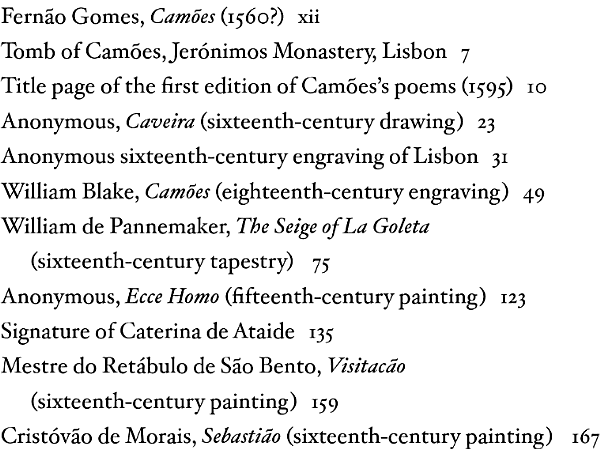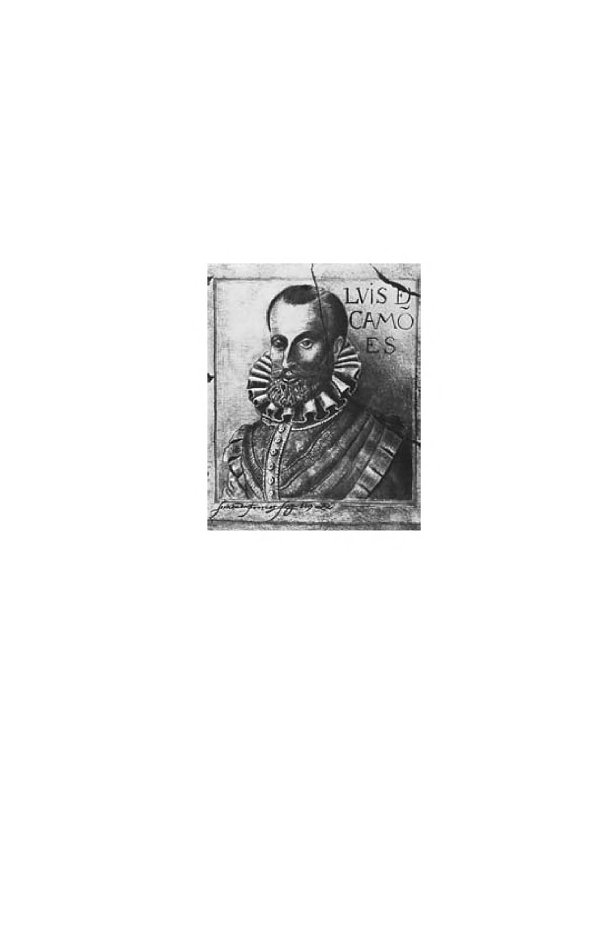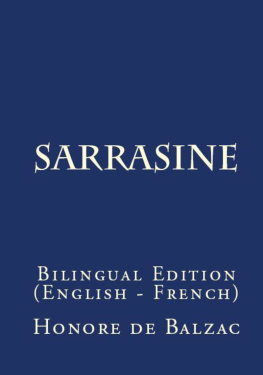Luis de Camoes - Selected Sonnets: A Bilingual Edition
Here you can read online Luis de Camoes - Selected Sonnets: A Bilingual Edition full text of the book (entire story) in english for free. Download pdf and epub, get meaning, cover and reviews about this ebook. publisher: University Of Chicago Press, genre: Art. Description of the work, (preface) as well as reviews are available. Best literature library LitArk.com created for fans of good reading and offers a wide selection of genres:
Romance novel
Science fiction
Adventure
Detective
Science
History
Home and family
Prose
Art
Politics
Computer
Non-fiction
Religion
Business
Children
Humor
Choose a favorite category and find really read worthwhile books. Enjoy immersion in the world of imagination, feel the emotions of the characters or learn something new for yourself, make an fascinating discovery.

- Book:Selected Sonnets: A Bilingual Edition
- Author:
- Publisher:University Of Chicago Press
- Genre:
- Rating:3 / 5
- Favourites:Add to favourites
- Your mark:
- 60
- 1
- 2
- 3
- 4
- 5
Selected Sonnets: A Bilingual Edition: summary, description and annotation
We offer to read an annotation, description, summary or preface (depends on what the author of the book "Selected Sonnets: A Bilingual Edition" wrote himself). If you haven't found the necessary information about the book — write in the comments, we will try to find it.
Selected Sonnets: A Bilingual Edition — read online for free the complete book (whole text) full work
Below is the text of the book, divided by pages. System saving the place of the last page read, allows you to conveniently read the book "Selected Sonnets: A Bilingual Edition" online for free, without having to search again every time where you left off. Put a bookmark, and you can go to the page where you finished reading at any time.
Font size:
Interval:
Bookmark:
Selected Sonnets


With it Camens soothed an exiles grief...
scorn not the sonnet wordsworth
Illustrations


Introduction
Lus de Cames (152480), the greatest of Portuguese writers, has been described by Harold Bloom as the transcendent genius of his nation. Cames is the author of the last great Western epic, Os Lusadas, and he was also one of the most sublime lyric poets of the Renaissance, often compared to Dante, Petrarch, and Shakespeare. The poets life, as commentator Henry H. Hart remarks, is so fascinating and adventurous that it borders on the unbelievable. The young Cames, a regular at the Lisbon court, lost an eye fighting the Moors in Morocco and was later arrested for stabbing a royal favorite in a Lisbon street brawl during the Corpus Christi celebrations of 1552. He was subsequently banished to the Eastern empire where he fought in several military engagements, served as a government official in Macao, China, and was charged with embezzlement.
Recalled to India, Cames, by his own account in Os Lusadas, was shipwrecked off the Cambodian coast and survived by swimming to shore clutching the only manuscript of his epic-in progress. Subsequently, he was jailed in Goa, India, for his activities in Macao and his unpaid debts. After seventeen years in the East, Cames found himself stranded in abject poverty in Mozambique. When he was fortuitously rescued by several friends, he was finally able to return to Lisbon, where he published his national epic, Os Lusadas, six years before the disastrous death of King Sebastio and his Portuguese army at Alccer-Kebir in Morocco.
Cames died in Lisbon in 1580 during an outbreak of the plague, just before Spain seized his beloved Portugal. Lus de Cames led a truly amazing life, one that Henry H. Hart has aptly described as more adventuresome by far than that of Franois Villon, as chivalrous as the Cyrano de Bergerac of Edmond Rostand, and as replete with excitement, love, and tragedy as The Three Musketeers of Alexandre Dumas.
The Life
As is the case with his younger contemporary, Shakespeare, only a few indisputable facts concerning Camess life can be verified by the public record. He lived in an era before the archivally useful habit of keeping personal diaries, and once Cames became famous, the facts of his life became enmeshed in a fascinating but frustrating web of legend, speculation, and pure invention. But despite these mythologies, theres much that we do know for certain.
Lus de Cames, according to an entry in the records of the Casa da India, was born in 1524, the son of Simo Vaz de Cames and Ana de S. He was from an impoverished but well-connected family that had originally come from Galicia in Spain when his ancestor, Vasco Pires de Cames (a minor poet), moved to Portugal in 1370 to serve under King Ferdinand I. On his mothers side, Lus was a distant kinsman of the legendary Vasco da Gama, who would eventually serve as the central figure in Camess Os Lusadas. It seems most probable that the young Lus de Cames grew up in Lisbon and, given his extraordinary erudition, its also reasonable to assume that he studied at the renowned University of Coimbra, founded in 1290. Its clear from his writings, especially his lovely sonnet about the Mondego River, that Cames indeed spent time in Coimbra.
Sometime in the early 1540s, Cames returned to Lisbon. He was often at court and writing poetry, but he was also a bit of a young swashbuckler, keeping company with a group of rowdy friends. During this period, according to legend and numerous biographers, Cames reputedly fell in love with Caterina de Ataide, a young lady at court who would become the inspiration for much of his love poetry. Theres been a long debate as to whether Caterina de Ataide was really Camess Beatrice, and some commentators have suggested instead the Infanta Dona Maria and others. Nevertheless, the case for Caterina is the most compelling, especially given Camess lyrics that refer to a beloved Natercia, an anagram for Caterina.
Whether its true that his love for Caterina was disapproved of by the Crown and that he was subsequently shunted off to military exile is much more debatable. Nevertheless, its certain that in 1547 Cames, as a common soldier, joined the garrison in Ceuta, Morocco, where he would lose his left eye fighting against the Moors. By June 1552, Cames was back in Lisbon, where he was arrested after a street brawl during the celebrations on the feast of Corpus Christi. During the altercation, he inflicted a sword wound on a minor court official named Gonalo Borges, who survived his injury. As a result, Cames was incarcerated in Tronco prison, paid a fine, and was eventually shipped out as a common soldier to India. He sailed on the So Bento, the only ship of four to arrive safely in Goa, India, that year. Over the next three years, Cames was involved in a number of military engagements, including action on the shores of Malabar, as well as the Straits of Mecca and the East African coast.
In 1556, with his military obligation completed, Cames was appointed the Trustee for the Dead and Absent in Macao, China. In this not insignificant position, Cames was responsible for the maintenance of all the properties of those abroad and deceased. It was an opportunity for Cames to finally make his fortune, and he seems to have done quite well until the charges of malfeasance, which he claims in Os Lusadas (canto X, stanza 128 ) were totally unjust. Summarily dismissed from his position and recalled to Goa to answer for his actions, Cames, as he vividly describes in the epics same passage, lost all his material possessions in a devastating shipwreck near the mouth of the Mekong River off Cambodia. Only his strong swimming skills allowed him to survive, and to bring with him through the waves and currents of the ocean his sole copy of Os Lusadas and, presumably, his lyrics as well.
When Cames finally arrived in Goa, he was jailed for his alleged embezzlements. Eventually the charges against him were dismissed, but his impoverished situation landed him back in jail when he couldnt pay his debts. From his writings, its very clear that Cames never liked the important trading city of Goa, which was the hub of the great Portuguese empire in the East, and which Cames, in one of his few surviving letters, called the mother of knaves and the stepmother of honest men. His continual despair in Goa (Babylon) and his longing for Lisbon (Zion) is a constant and powerful theme in his lyric poetry.
Eventually, Cames managed to arrange passage to Mozambique in 1567, but he ended up stranded and penniless on the African coast. When he was finally discovered by the Portuguese historian Diogo do Couto and another friend, they were appalled by his condition, and they gave him the necessary money to complete his passage back to Lisbon on the Santa Clara.When, at long last, Cames arrived back in his beloved country, Lisbon was engulfed in the plague, and the country itself was absorbed with the grandiose ambitions of its young king, Sebastio. As for Cames, after seventeen years abroad, hed returned to his native land even poorer than when hed left. At the age of fifty-one, his only publication thus far had been a dedicatory poem for Garcia da Ortas Colquios dos simples e drogas e cousas medicinais da India, etc. (Goa, 1563), a scientific book about medicinal plants. His beloved Caterina de Ataide had long been dead (1556), and hed returned to Portugal an obvious failure. The world had seemingly passed him by. All he had were his manuscripts.
Next pageFont size:
Interval:
Bookmark:
Similar books «Selected Sonnets: A Bilingual Edition»
Look at similar books to Selected Sonnets: A Bilingual Edition. We have selected literature similar in name and meaning in the hope of providing readers with more options to find new, interesting, not yet read works.
Discussion, reviews of the book Selected Sonnets: A Bilingual Edition and just readers' own opinions. Leave your comments, write what you think about the work, its meaning or the main characters. Specify what exactly you liked and what you didn't like, and why you think so.












